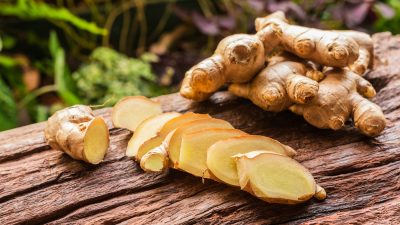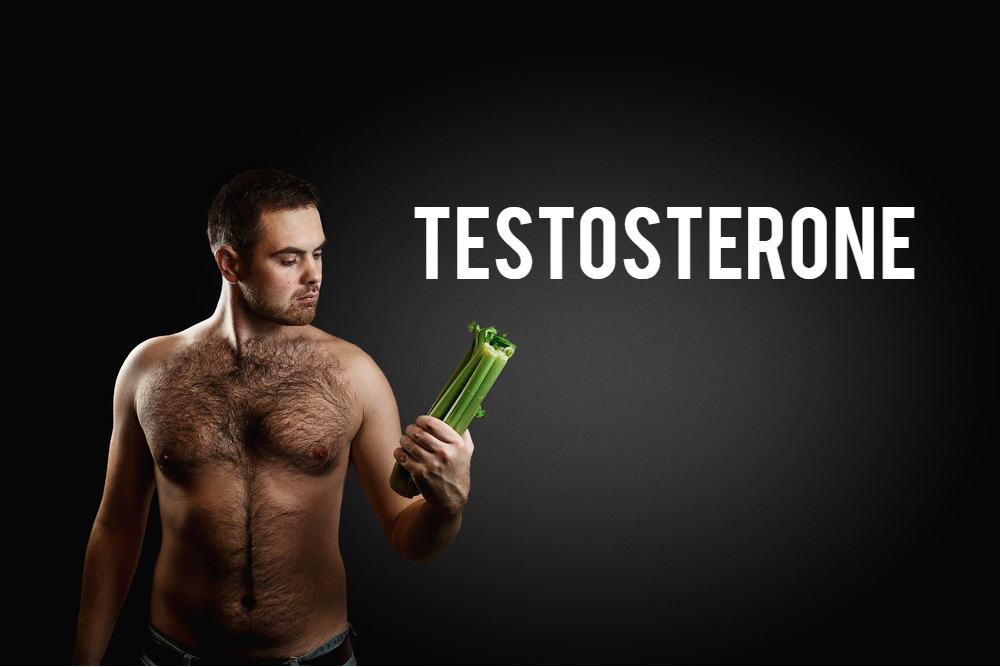Testosterone is the most vital hormone in a man that is responsible for the achievement of all sexual-related activities. It is a hormone that aids in the development of the inner and outer sex organs of a man.
It is also responsible for the production of red blood cells, production of sperm, an increase of bone density and strength, increase in muscle mass and size, growth of facial and body hair, a deepened voice, and broad shoulders. It modifies the muscular form in a boy.
With time, as men begin to age, they start to experience low production of testosterone, a condition known as male hypogonadism. Male hypogonadism is a condition that occurs because of the inability of the testicles to produce enough testosterone in a man.
Low testosterone level is typical among men who are aged forty-five and above. Low testosterone occurs naturally as men begin to age. The peak of the production of testosterone in men is during the period of twenty, after that it begins to wane naturally.
At this point, men start to get signals or signs that they might be experiencing low testosterone levels. Some of these symptoms include:
Changes in sleep pattern
Your changes in your sleeping pattern could be a sign that you have low testosterone levels. You might begin to experience sleep disturbances or insomnia.
Noticeable physical changes
A sign that you have low testosterone levels is a drastic change occurring in your physical structure. It could lead to excess weight or obesity and muscle bulk.
Sexual changes
With a lowered testosterone level, you begin to experience lots of negative sexual changes in your body. You begin to lose interest in sex and possibly even become infertile
Emotional changes
Men who suffer from low testosterone levels are likely to have current mood swings. You can begin to experience different feelings like depression, anxiety, irritability, and even sadness.
Worsening of sleep apnea
Sleep apnea is known as the condition whereby you experience sleep disturbances because of difficulty in breathing. Most men who have lowered testosterone levels suffer from sleep apnea.
Low production of sperm
It is well known that testosterone is responsible for the production of sperm in men. Without testosterone aiding in the production of sperm, man would be infertile. With a low testosterone level, men cannot produce enough sperm, and this is evident during ejaculation.
Loss of hair
Testosterone is responsible for the growth of facial and body hair in a human. With a lowered testosterone in a man, he begins to experience hair loss while women experience male pattern baldness.
Erectile dysfunction
Testosterone is responsible for sexual activities in the male body. It is the hormone that helps in achieving and maintaining an erectile.
With a reduced level of testosterone, men suffer from a condition known as erectile dysfunction. Erectile dysfunction is the inability of a man to achieve or maintain an erection.
Low bone density
Testosterone is responsible for the development of bone strength and mass. With a lowered testosterone level, the bone density of a man would become low, and he is likely to suffer from fractures because of the weakness of his bones.
 Fatigue and lack of energy.
Fatigue and lack of energy.- Hot flashes
- Testicular atrophy(abnormal changes in testes)
- High haemoglobin A1c
- Difficulty in concentration and retention of memory.
Low testosterone occurs naturally in men as they age, but there are other causes of low testosterone in men, which include:
Primary hypogonadism
Lack of active testes can lead to primary hypogonadism. This occurs because the testes do not produce enough testosterone that is needed for optimal growth and healthy living.
The lack of testes to produce enough sperm can be a result of genetics or illness. An inherited condition, such as:
Undescended testicles
This occurs when the testes do not ascend from the abdomen before birth.
Klinefelter’s syndrome
This occurs when a man is given birth to three sex chromosomes, that is, X,X and Y.
Hemochromatosis
If there is excess iron in the body of a man, it can lead to pituitary damage or testicular failure.
The type of testicle damages that could result in primary hypogonadism includes:
Changer treatment
The use of chemotherapy or radiation can cause harm to the testicles, thereby reducing the level of testosterone to be produced.
Infection of the testes
Infection such as the mumps orchitis can cause a reduction in the level of testosterone in a man.
Physical injury to the testicles
For an injury to reduce the level of testosterone produced in a man, it must first occur to both testicles. But physical injuries have been known to cause a reduction in the level of testosterone a man produces.
Secondary hypogonadism
This type of hypogonadism occurs as a result of damages suffered by the hypothalamus of the pituitary gland. These parts of the brain are responsible for the production of hormones which is controlled by the testes.
Inherited conditions include:
Kallman syndrome
This is a condition which aids in lowering the testosterone levels in a man; it is responsible for the abnormal functioning of the hypothalamus.
Pituitary disorders
This disorder can be caused by drugs, small tumors, or kidney failure. These conditions can lead to a lowered testosterone level.
Inflammatory diseases
Inflammatory disease causes a reduction in the testosterone levels of a man—conditions such as sarcoidosis, tuberculosis and histiocytosis, which have effects on the hypothalamus and pituitary gland.
HIV/AIDS
This is a disease that lowers the testosterone levels in a man because of its negative impact on the hypothalamus, testes and pituitary gland.
Other circumstances that could result in a lowered testosterone level include:
Ageing naturally
As men age, the level of testosterone they produce begins to reduce over time. This occurrence is entirely natural.
Obesity
Excess weight gain or obesity can lead to a lowered production of testosterone in man.
Medications
Meds and steroids for opioid pains can cause a negative effect on the hypothalamus and pituitary gland, thereby leading to low production of testosterone.
Concurrent illness
Experiencing severe stress from a chronic disease can cause your reproductive system to shut down. This leads to low testosterone levels in a man.
You could either be suffering from primary hypogonadism, secondary hypogonadism, or mixed hypogonadism. Mixed hypogonadism usually occurs in men of increased age. However, low testosterone levels can be treated and elevated. There are numerous ways to boost your testosterone levels, of which your essential foods are involved.
Types of foods that boost testosterone levels include:
 Ginger
Ginger
Ginger is excellent for boosting testosterone levels. Research has shown that men who take ginger regularly tend to have high testosterone levels. Ginger helps in the improvement of sperm production and fertility also.
Oysters
Oysters are one of the best foods that aid in boosting the testosterone levels in men. With its high zinc content, known to increase sperm production and other reproductive functions, oysters are known to be the best.
Men who have a small amount of zinc in their bodies tend to suffer from hypogonadism. You can also locate zinc in other shellfish, red meat, beans, poultry and nuts. Zinc and copper are two competitive minerals, so it is essential to consume them at a moderate level.
Pomegranates
Pomegranates have been known for ages for its antioxidant levels, which aid in fertility and sexual functions.It is also responsible for stress reduction and healthy heart functioning.
Fortified plant milk
Fortified plant milk is an excellent source of vitamin D. Vitamin D is known for its work in increasing the testosterone levels in men. It is advised to frequently take a walkin the sun because it is a source of vitamin D to your body.
Other sources of vitamin D are orange juice, cereals and other dairy product. Note that getting vitamin D is right for your health.
Leafy green vegetables
Vegetables like Swiss chard, spinach, and kale are high contained with magnesium, a type of mineral that is known to boost the testosterone levels in a man. Other sources of magnesium include beans and lentils, whole grains and nuts.
Fatty fish and fish oil
Fatty fish are very beneficial when it comes to increasing the testosterone levels in a man because it contains omega-3 fatty acids. You can also increase your testosterone levels by just taking fish oils or consuming omega-3 supplements.
Fishes that are rich in omega-three fatty acids are Atlantic mackerel, herring, salmon, sardines and trout.
Onions
Onions are amazing when it comes to boosting your testosterone levels. They also aid in slimming the waistline and supporting the heart. They are excellent sources of antioxidants which are known to increase testosterone levels in man.
Conclusion
Testosterone is known as the vital sex hormone in men; it aids in the production of sperm cells, production of red blood cells, the formation of sex organs and increase in the sex drive of a man. The testosterone levels in a man begin to wane naturally as he ages.
Most men experience low levels of testosterone at the age of thirty. However, there are natural ways to boost your testosterone levels through the use of foods like milk, nuts, oysters and ginger.








COMMENTS